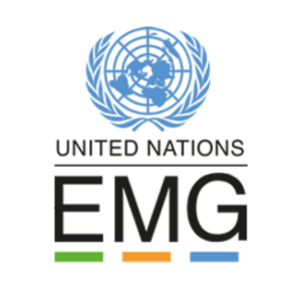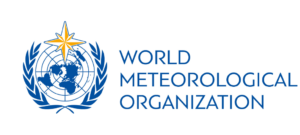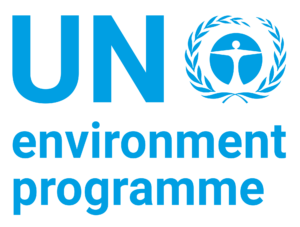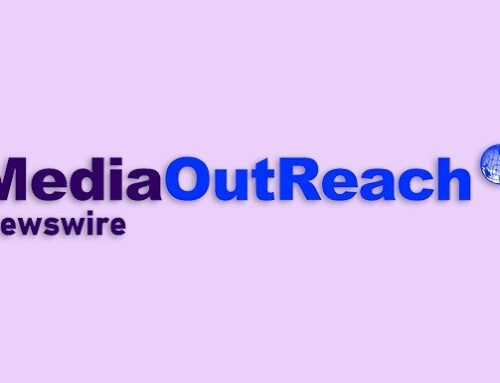Environment: What’s Up in GENeva | 6
January 6, 2025
The Geneva Environment Network’s weekly newsletter includes the latest information on the global environmental agenda, main events, job vacancies, as well as other useful resources and updates. Stay tuned and follow us on X (Twitter), Facebook, LinkedIn, Instagram, Bluesky, and Youtube, or visit our website regularly for additional updates.
Image of the week | 2024 ended in Geneva with a festive night under the theme “What Unites Us”. The fireworks at midnight lightened up the Geneva sky in celebration of the new year. Despite the fog, the moment was captured by photojournalist Demir Sönmez, who covers many events in local and international Geneva. © Demir Sönmez, 1 January 2025.
2025 and the Global Environmental Agenda
Happy New Year to all!
In his message for the New Year 2025, the UN Secretary-General recalled that throughout 2024, hope has been hard to find. But together, we can make 2025 a new beginning. Not as a world divided. But as nations united.
After another busy year in 2024 that led to the adoption of decisions to tackle the triple planetary crisis, various key events for the future of our planet are scheduled to take place around the world this year. Consult our updated page on the International Environmental Negotiations Agenda for the coming months.
International meetings and negotiations planned this year in Geneva of particular interest for the environmental community include:
- 20 – 24 January | 64th Meeting of the Standing Committee of the Convention on Wetlands | SC64
- 3 – 8 February | 78th Meeting of the Standing Committee of the Convention on International Trade in Endangered Species of Wild Fauna and Flora | CITES SC78
- 24 February – 4 April | 58th session of the Human Rights Council | HRC 58
- 3 – 5 March | 5th UN Ocean Forum on trade-related aspects of SDG 14
- 19 – 20 March | Global workshop on increasing climate resilience with focus on floods and health on the transboundary and national levels
- 24 – 28 March | UNECE Resource Management Week
- 2 – 3 April | Regional Forum on Sustainable Development for the UNECE Region | RFSD 2025
- 28 April – 9 May | 2025 Meetings of the Conference of the Parties to the Basel, Rotterdam and Stockholm Conventions | BRS COPs 2025
- 19 – 27 May | 78th World Health Assembly | WHA 78
- 2 – 6 June | 8th Session of the Global Platform for Disaster Risk Reduction | GP2025
- 2 – 13 June | 113th session of the International Labour Conference | ILC 113
- 16 June – 11 July | 59th session of the Human Rights Council | HRC 59
- 2 – 3 September | World Resources Forum | WRF25
- 8 September – 3 October | 60th session of the Human Rights Council | HRC 60
- 20 – 24 October | Extraordinary session of the World Meteorological Congress | Cg Ext(2025)
- 30 – 31 October | 2025 Social Forum
- 3 – 7 November | 6th meeting of the Conference of the Parties to the Minamata Convention on Mercury | Minamata COP-6
- 24 – 26 November | 14th UN Forum on Business and Human Rights
- 8 – 11 December | 45th session of the Executive Body for the Convention on Long-range Transboundary Air Pollution (Air Convention)
Other international meetings and negotiations planned around the world of particular interest for the global environmental agenda and international Geneva include:
- 20 – 24 January | World Economic Forum Annual Meeting | Davos, Switzerland
- 14 – 16 February | 61st Munich Security Conference | Munich, Germany
- 24 – 28 February | 62nd session of the Intergovernmental Panel on Climate Change | IPCC-62 | Hangzhou, China
- 25 – 27 February | 2nd Resumed Session of UN Biodiversity Conference | CBD COP 16 | Rome, Italy
- 17 – 28 March | 30th Session of the International Seabed Authority Assembly and Council (Part I) | ISA30 | Kingston, Jamaica
- 25 – 27 March | Second Global Conference on Air Pollution and Health | Cartagena de Indias, Bolivar, Colombia
- 2 – 3 April | 41st Meeting of UN-Water | Rome, Italy
- 14 – 25 April | 2nd substantive meeting of the Preparatory Commission of the BBNJ Agreement (Part I) | BBNJ PrepCom II | New York, USA
- 5 – 9 May | GEO Global Forum | Rome, Italy
- 9 – 13 June | 3rd UN Ocean Conference | Nice, France
- 21 – 27 June | Open-ended Working Group (OEWG) and First Conference of the Global Framework on Chemicals – For a Planet Free of Harm from Chemicals and Waste | Nairobi, Kenya
- 28 June | International Conference on Glaciers’ Preservation | Dushanbe, Tajikistan
- 30 June – 3 July | 4th International Conference on Financing for Development | Sevilla, Spain
- June | 69th Meeting of the Global Environmental Facility Council | Washington DC, USA
- 7 – 25 July | 30th Session of the International Seabed Authority Assembly and Council (Part II) | ISA30 | Kingston, Jamaica
- 7 – 11 July | 47th meeting of the Open-Ended Working Group of the Parties to the Montreal Protocol on Substances that Deplete the Ozone Layer | 47th OEWG | Bangkok, Thailand
- 14 – 21 July | UN High-level Political Forum on Sustainable Development | HLPF 2025 | New York, USA
- 23 – 31 July | 15th session of the Conference of the Parties to the Convention on Wetlands | COP15 | Victoria Falls, Zimbabwe
- 18 – 29 August | 2nd substantive meeting of the Preparatory Commission of the BBNJ Agreement (Part II) | BBNJ PrepCom II | New York, USA
- 22 – 25 September | 21st Meeting of the Chemical Review Committee (Rotterdam Convention)| CRC-21 | Rome, Italy
- 29 September – 3 October | 21st Meeting of the Persistent Organic Pollutants Review Committee (Stockholm Convention) | POPRC-21 | Rome, Italy
- 9 – 15 October | IUCN World Conservation Congress | Abu Dhabi, United Arab Emirates
- 3 – 7 November | 37th session of the Meeting of the Parties to the Montreal Protocol | TBC
- 10 – 21 November | UN Climate Change Conference COP30 | Belém, Brazil
- 5 – 7 November | 7th session of the Meeting of the Parties to the Protocol on Water and Health | MOP7 | Budapest, Hungary
- 24 November – 5 December | 20th session of the Conference of the Parties to the Convention on International Trade in Endangered Species of Wild Fauna and Flora | CITES CoP20 | Samarkand, Uzbekistan
- 1 – 5 December | 7th Meeting of the Open-ended Committee of Permanent Representatives | OECPR-7 | Nairobi, Kenya
- 8 – 12 December | 7th UN Environment Assembly | UNEA-7 | Nairobi, Kenya
Other meetings and negotiations taking place this year with dates to be confirmed include:
- H1 2025 | Meetings of the Intergovernmental Negotiating Body (INB) on the Pandemic Treaty | Geneva
- H1 2025 | Resumed 3rd session of the Open-Ended Working Group on a Science-Policy Panel to contribute further to the sound management of chemicals and waste and to prevent pollution | SPP CWP OEWG3.2 | TBC
- 2025 | Resumed 5th session of the Intergovernmental Negotiating Committee to develop an international legally binding instrument on plastic pollution, including in the marine environment | Plastic Pollution INC-5.2 | TBC
- H2 2025 | 16th Ministerial Conference of UN Trade and Development | UNCTAD16 | TBC
- H2 2025 | 15th Global Forum on Migration and Development Summit | 15th GFMD Summit | Colombia (TBC)
- Late Autumn 2025 | 8th session of the Meeting of the Parties to the Convention on Access to Information, Public Participation in Decision-making and Access to Justice in Environmental Matters (Aarhus Convention) and the 5th session of the Meeting of the Parties to the Protocol on Pollutant Release and Transfer Registers (PRTRs) | UNECE Aarhus Convention MOP8 & Protocol on PRTRs MOP5 | TBC
- Late Autumn 2025 | Intergovernmental Forum on Mining, Minerals, Metals and Sustainable Development (IGF) 21st Annual General Meeting | Geneva
Ongoing decades of interest for the environmental community:
- Decade of Action for Cryospheric Sciences | 2025-2034
- United Nations Decade on Combating Sand and Dust Storms | 2025–2034
- International Decade of Sciences for Sustainable Development | 2024–2033
- International Decade of Indigenous Languages | 2022-2032
- United Nations Decade on Ecosystem Restoration | 2021-2030
- United Nations Decade of Ocean Science for Sustainable Development | 2021-2030
- International Decade for Action “Water for Sustainable Development” | 2018-2028
In 2025, we also celebrate:
- International Year of Glaciers’ Preservation
- ITU 160th Anniversary
- 80th Anniversary of the United Nations
- WMO 75th Anniversary
- CITES entry into force 50th anniversary
- GCSP 30th anniversary
- GEO’s 20th anniversary
Recent resources on what to expect in 2025 include:
- The climate crisis: 5 things to watch out for in 2025 | UN News | 29 December 2024
Geneva Environment Network High-Level 25th Anniversary Celebration | GEN@25
Celebrating the 25 years of the Geneva Environment Network is celebrating the numerous institutions in international Geneva and beyond that contribute to making Geneva a global hub for environmental governance. To close the celebration of this important milestone, two key moments will take place at the International Environment House on Monday 20 January: the GEN@25 Environment Forum, followed by the High-Level Closing Ceremony.
- The GEN@25 Environment Forum — from 9:00 to 10:45 CET — will feature key thematic areas of work of international Geneva and how these are accelerating action to tackle the triple planetary crisis. Partners and stakeholders will gather at the International Environment House to get together and showcase how international Geneva creates synergies, drives innovation, and boosts ambition to advance environmental action:
- Climate Action
- Action on Nature, Land and Biodiversity Loss
- Action on Pollution and Waste
- Beating Plastic Pollution
- Future-Proofing Mineral and Metal Resources Governance
- Advancing Trade Solutions to the Environmental Crisis
- Placing Human Rights at the Heart of Environmental Action
- Catalyzing Environmental Action through Digital Transformation
- Strengthening the Science-Policy Interface
- Advancing the One Health Approach
- Ensuring a Just Transition
- Coordinating Action to Restore the Water Cycle
- Geneva Humanitarian Hub at the Frontlines of Environmental Action
- The closing high-level panel — from 10:45 to 11:45 CET — will reflect on the importance of strengthened partnerships while fostering a vision for the future, encouraging continued collaboration and action. It will be followed by a network reception — from 11:45 to 13:30 — offered by Switzerland and local authorities. The event will feature the Executive Director of the United Nations Environment Programme, Inger Andersen, and other leading figures of the environmental community.
This Geneva Environment Network High-Level 25th Anniversary Celebration is taking place at the International Environment House on Monday 20 January. → To participate, kindly register via Forms.
New IPBES Assessments | A Path Forward for Policymakers to Address the Planetary Crisis
Two landmark scientific reports were adopted and launched at the eleventh session of the Plenary of the Intergovernmental Science-Policy Platform on Biodiversity and Ecosystem Services (IPBES 11), that took place in Windhoek, Namibia, last December.
- The Assessment Report on the Interlinkages Among Biodiversity, Water, Food and Health – known as the Nexus Report – offers decision-makers the most ambitious scientific assessment ever undertaken of these complex interconnections and explores more than five dozen specific response options to maximize co-benefits across five ‘nexus elements’: biodiversity, water, food, health and climate change. The report states that biodiversity – the richness and variety of all life on Earth – is declining at every level from global to local, and across every region. These ongoing declines in nature, largely as a result of human activity, including climate change, have direct and dire impacts on food security and nutrition, water quality and availability, health and wellbeing outcomes, resilience to climate change and almost all of nature’s other contributions to people. It further underscores how indirect socioeconomic drivers, such as increasing waste, overconsumption and population growth, intensify the direct drivers – worsening impacts on all parts of the nexus. → Learn more and access IPBES Press Release and related resources.
- The Assessment Report on the Underlying Causes of Biodiversity Loss and the Determinants of Transformative Change and Options for Achieving the 2050 Vision for Biodiversity – also known as the Transformative Change Report – was prepared for over three years by more than 100 leading experts from 42 countries from all regions of the world, the report explains what transformative change is, how it occurs, and how to accelerate it for a just and sustainable world. The report defines transformative change as fundamental system-wide shifts in views – ways of thinking, knowing and seeing; structures – ways of organizing, regulating and governing; and practices – ways of doing, behaving and relating. Current dominant configurations of views, structures and practices perpetuate and reinforce the underlying causes of biodiversity loss and nature’s decline. Transforming them is central to delivering on the global commitments for a just and sustainable world. → Learn more and access IPBES Press Release and related resources.
To amplify the messages of the Assessments and the important work of IPBES to the Geneva community and beyond, Switzerland and the Geneva Environment Network are planning an event, tentatively on 16 January 2025. Leading authors and experts invited to join the panel of this event will present the key findings of the reports and reflect on how the multilateral system can meet the interconnected challenges that result from the accelerated speed and scale of environmental change and rising inequalities identified in the assessments. → Save the date and register to join us in-person or online at the International Environment House. The event will be streamed on Youtube.
Call for Submissions and Contests | Upcoming Deadlines
With the environment high on the agenda of International Geneva and beyond, international processes, negotiations, and fora regularly call for inputs in preparation for future reports and guidelines or for people to support their process. A dedicated update lists calls for submissions related to the environment. Additional updates also list those related to Human Rights Mechanisms and ongoing contests launched by our partners. Deadlines not to be missed during the coming weeks include:
- Economic, Social and Cultural Rights and the Environmental Dimension of Sustainable Development | The Committee on Economic, Social and Cultural Rights is developing a general comment on Economic, Social and Cultural Rights and the Environmental Dimension of Sustainable Development. The purpose of this general comment is to clarify the specific obligations of States parties relating to the Environmental Dimension of Sustainable Development under the International Covenant on Economic, Social and Cultural Rights. By way of public consultation, the Committee invites interested individuals and organizations, including States, national human rights institutions, civil society organizations, academics, international and regional organizations and experts, to make a written contribution to the draft general comment. The Committee has prepared the draft general comment available at the link below. The deadline for submission is 6 January 2025. → Submit your input
- Call for Abstracts: New Resource Strategies for a Fair and Sustainable Future | The World Resources Forum (WRF) is a world-leading conference in the field of sustainable natural resource governance and management. WRF’25 will take place in a hybrid format in Geneva (Switzerland) on 2-3 September, and online on 4-5 September 2025. WRF’25 focuses on three sectors with significant resource use and environmental, social and economic impacts (“resource hotspots”): the extractive sector, the built environment and consumer & industrial goods. The goal is to invite scientific contributions that propose innovative strategies and tools to enhance sustainability and fairness across these sectors within planetary boundaries. Submissions that propose strategies for governments, industry and civil society, put forward interdisciplinary approaches, and utilise innovative methods to assess impacts are highly encouraged. Read more about the submission and modalities and send your abstract by 14 January 2025.
- GEO-7 Peer Review Process | GEO reports are the United Nations Environment Programme’s flagship assessments, published periodically, as well as generating multiple thematic, regional, and audience-specific assessments. GEO-READ supports and enhances the rigor, credibility, and transparency of the assessment’s review process. It also provides review editors and other stakeholders with various analytical tools to guide and supplement their work as they analyse the large numbers of comments provided by peer and government-nominated reviewers. Share your expertise and join the intergovernmental and expert peer review process for the GEO-7, which is open until 15 January 2025.
- Global Framework on Chemicals Fund Call for Projects | The Global Framework on Chemicals Fund issues periodic calls for applications. For the first round of applications, the Fund provides financial support of 300,000 to 800,000 USD for an implementation period of up to three years. Interested applicants may use the four-month application period to develop a project proposal and fill in the requested forms. Project development usually involves extensive consultation with respective ministries and other stakeholders. The Fund encourages all applicants to reach out to their national focal point early to discuss national priorities. Find more information and submission criteria on the official page of the call and send your complete application package in Word and PDF (with scanned or electronic signatures) to unep-gfc.fund@un.org by 31 January 2025.
- Expert Mechanism on the Rights of Indigenous Peoples
- Pursuant to Human Rights Council resolution 33/25, during its seventeenth session in 2024, the Expert Mechanism confirmed its decision to prepare a report on “The right of Indigenous Peoples to their traditional economies.” This report will be presented at the sixtieth session of the Human Rights Council in September 2025. To contribute, inputs can be submitted until 31 January 2025. → Submit your input
- Pursuant to Human Rights Council resolution 33/25, during its seventeenth session in 2024, the Expert Mechanism confirmed its decision to prepare a study on “Indigenous Peoples right to data, including data collection and disaggregation”. The purpose of this study is to highlight the significant value of data to Indigenous Peoples while analyzing the right to data, including through collection and disaggregation. The deadline for submission is 31 January 2025. → Submit your input
- Agenda 21 one-off grant for organizations and the climate emergency | Eligible projects aim to transform the way an organization or structure (theater, sports club, crèche, NGO, etc.) operates, to make it more sustainable in the long term. The change must be structural, organizational, functional, and part of an in-depth reflection on the organization. The application deadline is 31 January 2025.
- 2025 GEO Awards | In celebration of GEO’s 20-year anniversary, this year’s awards will feature two categories: the first honours emerging individual leaders, continuing the tradition set in 2023 in Cape Town, while the second introduces a special Lifetime Achievement Award to mark this significant milestone. Nominations, including self-nominations and nominations by sponsors, should be submitted by 31 January 2025.
What (Else) to Read Next?
- Russia clears beaches after Black Sea oil spill, declares emergency in Crimea | Reuters | 4 January 2025
Russia declared a regional state of emergency on Saturday in Crimea as workers cleared tons of contaminated sand and earth on either side of the Kerch Strait following an oil spill in the Black Sea last month. - WMO Information System 2.0 will transform sharing of Earth System Data | WMO | 3 January 2025
WMO announced a milestone in international meteorological cooperation – with the operational phase of the WMO Information System 2.0 (WIS 2.0) which will help change the way nations share Earth system data. WIS 2.0 exemplifies what we can achieve through global collaboration and marks a great start to the 75th anniversary of WMO as a specialized United Nations agency. - Climate change impacts grip globe in 2024 | WMO | 30 December 2024
The year 2024 is set to be the warmest on record, capping a decade of unprecedented heat fuelled by human activities, according to the World Meteorological Organization (WMO). Greenhouse gas levels continue to grow to record observed highs, locking in even more heat for the future. On 10 January 2025, WMO will issue a press release with the consolidated global temperature figures for 2024. - Haut-Uélé: Un déguerpissement forcé par Kibali Gold renvoie plus de 25 000 ménages à la belle étoile à Watsha | MINES.CD – Premier média congolais du secteur minier | 25 December 2024
Depuis trois (3) ans maintenant, plus de 25.000 ménages issus de 35 villages situés dans le territoire de Watsha, dans la province de Haut-Uélé, dorment à la belle étoile. Ces citoyens congolais étaient déguerpis par le géant minier Kibali-Gold sans indemnisation. - The next massive volcanic eruption is coming. It will cause chaos the world is not prepared for | CNN | 24 December 2024
The next massive eruption will “cause climate chaos,” and “Humanity does not have any plan.” The next eruption could happen anywhere. There are areas scientists are watching, including Indonesia, one of the planet’s most volcanically active regions, and Yellowstone, in Western US, which hasn’t experienced a huge eruption for hundreds of thousands of years. - The World’s Largest Iceberg Has Broken Free And Is On The Move | Science Alert | 21 December 2024
With a surface area more than twice that of Greater London’s, A23a is the biggest iceberg on the planet, having calved from the Filchner-Ronne Ice Shelf in 1986. The frozen leviathan is now on the move across Antarctica seas once more having spent the last few months going round in circles. - GEF Council provides funding boost for pollution and other priorities, kicks off ninth replenishment | GEF | 20 December 2024
Representatives of 186 donor and recipient countries allocate nearly $700 million in financing focused on chemicals and waste management, and approve expansion of two flagship programs to increase support to Indigenous Peoples and local communities. - Human Rights Council Advisory Committee concludes its 32nd session | OHCHR | 20 December 2024
The Committee, which serves as the Council’s “think tank,” acted on six issues, including human rights implications of new and emerging technologies in the military domain (resolution 51/22) and the implications of plastic pollution for the full enjoyment of human rights (decision 56/117). - Key takeaways from COP29 and the road ahead for developing countries | UN Trade and Development | 19 December 2024
The annual conference generates new momentum to combat climate change, but much work remains to help developing economies translate ambition into impactful solutions. - Quels sont les lieux les plus pollués par les TFA, de la famille des PFAS, en Suisse? | RTS | 18 December 2024
Les eaux souterraines suisses sont contaminées par des PFAS, des polluants éternels. Parmi eux, l’acide trifluoroacétique, ou TFA, est très présent, surtout en plaine, selon l’Office fédéral de l’environnement. Si l’OFEV n’avait pas précisé les zones les plus touchées, RTSinfo révèle ces informations obtenues grâce à la loi sur la transparence. - New database on critical minerals trade launched to support clean energy transition | WTO | 18 December 2024
The Asian Development Bank and WTO have jointly launched a database on trade in critical minerals to enhance transparency regarding these minerals and to support the clean energy transition. The database provides information on trade flows, allows visualizations of trade networks and specialization patterns and compiles data on tariffs and other trade policies for 250 critical minerals and related products across value chains. - DR Congo files criminal complaint against Apple over conflict minerals | Euronews | 18 December 2024
The Democratic Republic of the Congo has filed criminal complaints in France and Belgium against subsidiaries of Apple, accusing the tech giant of using conflict minerals. Lawyers representing the Congolese government allege that Apple uses minerals pillaged from the DRC and laundered through global supply chains, making it complicit in crimes committed by armed groups that control some of the mines in the country’s east. - Plastics Treaty: What Went Wrong in Busan? What’s Next? | IISD | 18 December 2024
The failure of negotiators to finalize a new plastics treaty in Busan, Republic of Korea, in November came as no surprise. As we predicted, “[e]ven if negotiators work around the clock for the duration of the meeting, seven days is simply not enough time to resolve all remaining issues… .”. - Three months of intense environmental diplomacy | UNEP ED Inger Andersen’s Speech | 17 December 2024
As 2024 comes to an end, it is clear the world has moved forward on some key issues and stalled on some others. With the clock ticking down to 2030, with the Sustainable Development Goals and many important deadlines, next year must bring progress across the board, on key issues. A stronger UNEP will do its utmost to help make this happen, and I am sure we can count on you to do the same. - General Council Chair welcomes “significant progress” in dispute settlement reform talks | WTO | 17 December 2024
Iceland withdrew two draft decisions related to fisheries subsidies from the GC agenda. The decision was based on the report of the Chair of the fisheries subsidies negotiations, Ambassador Einar Gunnarsson of Iceland, who stated that discussions among members have reached a stalemate even though nearly all members could support the current text as a basis for conclusion. - Whaling activist Paul Watson celebrates release from jail after Denmark refuses extradition to Japan | The Guardian | 17 December 2024
Whaling activist Paul Watson celebrates release from jail after Denmark refuses extradition to Japan. - The benefits of removing toxic chemicals from plastics | Maureen Cropper, Sarah Dunlop, Hudson Hinshaw et al. | PNAS | 16 December 2024
Endocrine-disrupting and neurotoxic chemicals in plastics pose serious threats to human health. By examining exposures to three toxic chemicals found in plastics and their estimated health impacts, the study provides evidence of the health benefits of reducing chemical exposures in plastics. - Agreement on Climate Change, Trade and Sustainability: A landmark pact for trade and sustainability | IISD | 13 December 2024
On 15 November, Costa Rica, Iceland, New Zealand, and Switzerland signed the Agreement on Climate Change, Trade and Sustainability (ACCTS). While the agreement shows how trade rules can help drive sustainable development, there are a worrying number of exceptions in the final text that could undermine the treaty’s effectiveness. On the positive side, the agreement is designed to develop over time through its review mechanism that allows for changes in scope and the addition of new members. - General Assembly Adopts Texts on Ocean Governance, International Observances, as Speakers Stress Need to Safeguard Marine Ecosystem, Resources | UN News | 12 December 2024
The General Assembly adopted four resolutions, including one on oceans and the law of the sea (document A/79/L.37); a resolution titled “Sustainable fisheries, including through the 1995 Agreement for the Implementation of the Provisions of the United Nations Convention on the Law of the Sea of 10 December 1982 relating to the Conservation and Management of Straddling Fish Stocks and Highly Migratory Fish Stocks, and related instruments” (document A/79/L.38); a resolution titled “World Lake Day” (document A/79/L.39), through which it decided to designate 27 August as World Lake Day; and a resolution titled “International Day of the Snow Leopard” (document A/79/L.40). - Promoting Human Rights in Climate Action: Report from the Baku Climate Conference COP29 | CIEL | December 2024
COP29 concluded in an overall lack of progress and several steps backward when it comes to ambition, human rights, fossil fuel phaseout, and finance. COP29’s inability to bring finance at the scale of needs to spark ambition – at a critical moment in time when countries are expected to prepare their Nationally Determined Contributions – is yet another example of the continued failure of developed countries and of the UNFCCC process to deliver outcomes that uphold State obligations in the context of the climate crisis.


Local
Animation famille – Herbiers sous-lacustres : les secrets des plantes du Léman
Association Sauvegarde du Léman
ASL

Local
Philo aux Bains: Le coût environnemental du bonheur avec Gaël Brulé
Bains des Pâquis
Bains des Pâquis


Professional
Administrateur.ice du dispositif dédié à la solidarité internationale (80%)
City of Geneva







Search
RECENT PRESS RELEASES
Related Post




